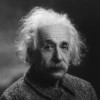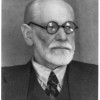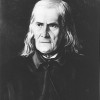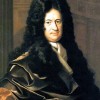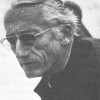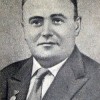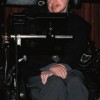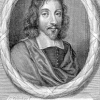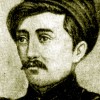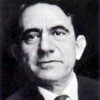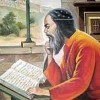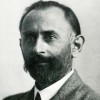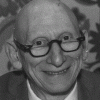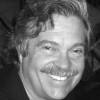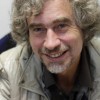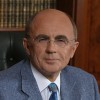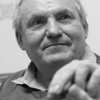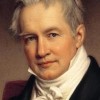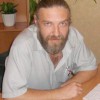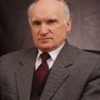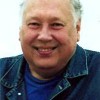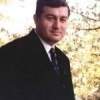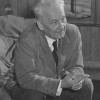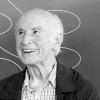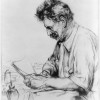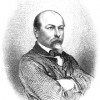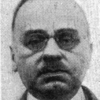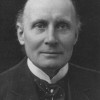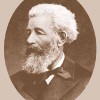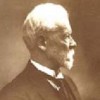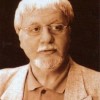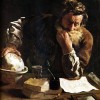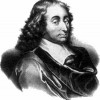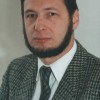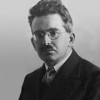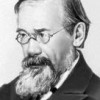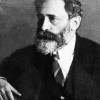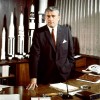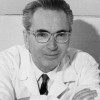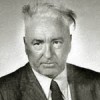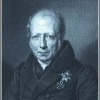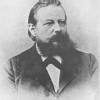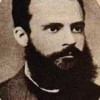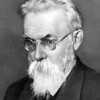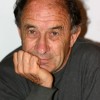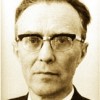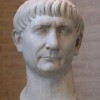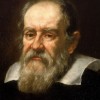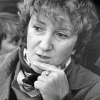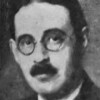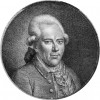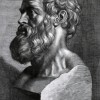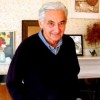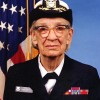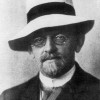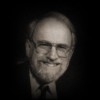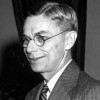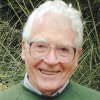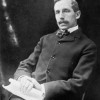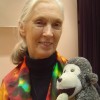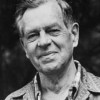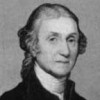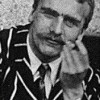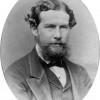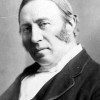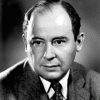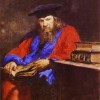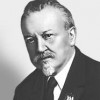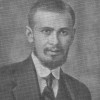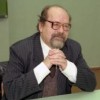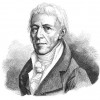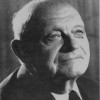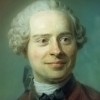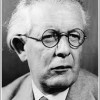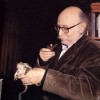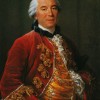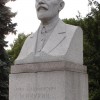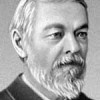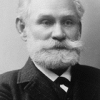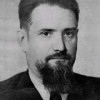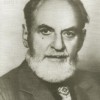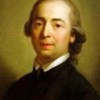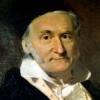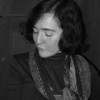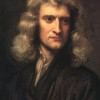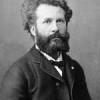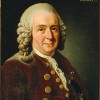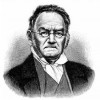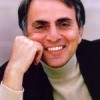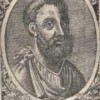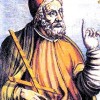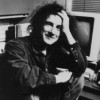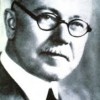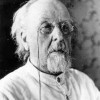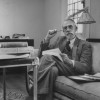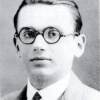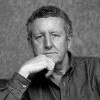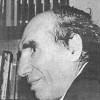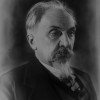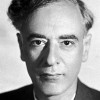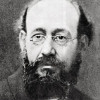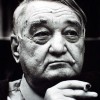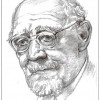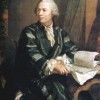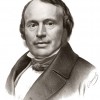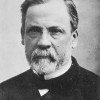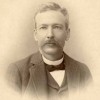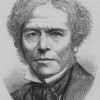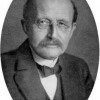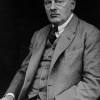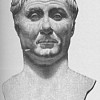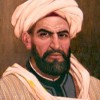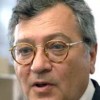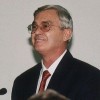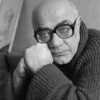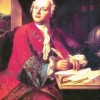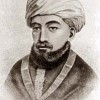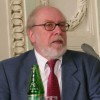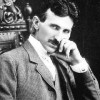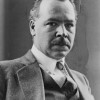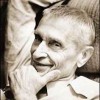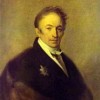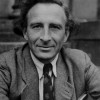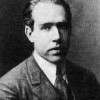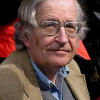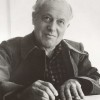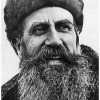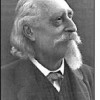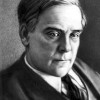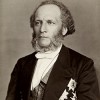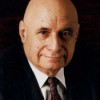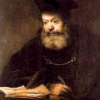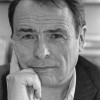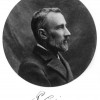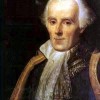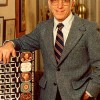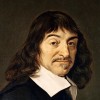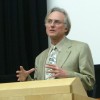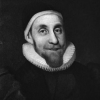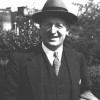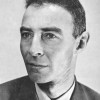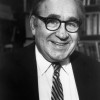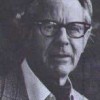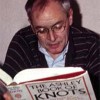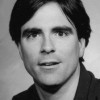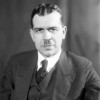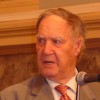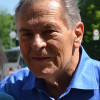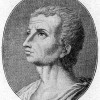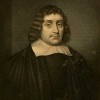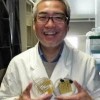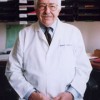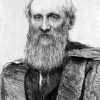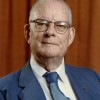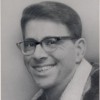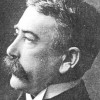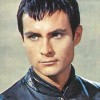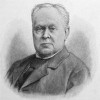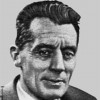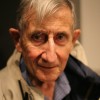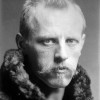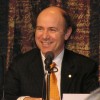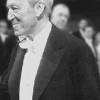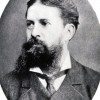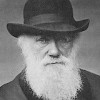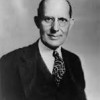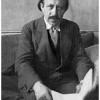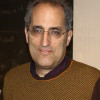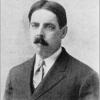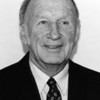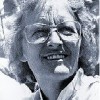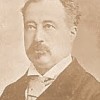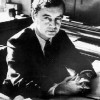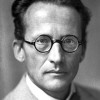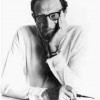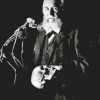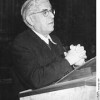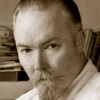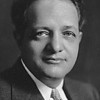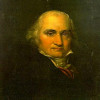Jacques-Yves Cousteau was a French naval officer, explorer, conservationist, filmmaker, innovator, scientist, photographer, author and researcher who studied the sea and all forms of life in water.
He co-developed the Aqua-Lung, pioneered marine conservation and was a member of the Académie française.
Stephen William Hawking was an English theoretical physicist, cosmologist, and author who, at the time of his death, was director of research at the Centre for Theoretical Cosmology at the University of Cambridge.
Albert Imre Szent-Györgyi de Nagyrápolt (Hungarian: nagyrápolti Szent-Györgyi Albert Imre; September 16, 1893 – October 22, 1986) was a Hungarian biochemist who won the Nobel Prize in Physiology or Medicine in 1937.
He is credited with first isolating vitamin C and discovering the components and reactions of the citric acid cycle. He was also active in the Hungarian Resistance during World War II, and entered Hungarian politics after the war.
Albert Hofmann (11 January 1906 – 29 April 2008) was a Swiss chemist known for being the first to synthesize, ingest, and learn of the psychedelic effects of lysergic acid diethylamide (LSD). Hofmann's team also isolated, named and synthesized the principal psychedelic mushroom compounds psilocybin and psilocin.
He authored more than 100 scientific articles and numerous books, including LSD: Mein Sorgenkind (LSD: My Problem Child). In 2007, he shared first place with Tim Berners-Lee on a list of the 100 greatest living geniuses published by The Daily Telegraph newspaper.
Archimedes of Syracuse (; Greek: Ἀρχιμήδης; c. 287 – c. 212 BC) was a Greek mathematician, physicist, engineer, inventor, and astronomer.
Although few details of his life are known, he is regarded as one of the leading scientists in classical antiquity. Generally considered the greatest mathematician of antiquity and one of the greatest of all time, Archimedes anticipated modern calculus and analysis by applying concepts of infinitesimals and the method of exhaustion to derive and rigorously prove a range of geometrical theorems, including the area of a circle, the surface area and volume of a sphere, and the area under a parabola.Other mathematical achievements include deriving an accurate approximation of pi, defining and investigating the spiral bearing his name, and creating a system using exponentiation for expressing very large numbers. He was also one of the first to apply mathematics to physical phenomena, founding hydrostatics and statics, including an explanation of the principle of the lever. He is credited with designing innovative machines, such as his screw pump, compound pulleys, and defensive war machines to protect his native Syracuse from invasion.
Archimedes died during the Siege of Syracuse when he was killed by a Roman soldier despite orders that he should not be harmed. Cicero describes visiting the tomb of Archimedes, which was surmounted by a sphere and a cylinder, which Archimedes had requested be placed on his tomb to represent his mathematical discoveries.
Unlike his inventions, the mathematical writings of Archimedes were little known in antiquity. Mathematicians from Alexandria read and quoted him, but the first comprehensive compilation was not made until c. 530 AD by Isidore of Miletus in Byzantine Constantinople, while commentaries on the works of Archimedes written by Eutocius in the sixth century AD opened them to wider readership for the first time. The relatively few copies of Archimedes' written work that survived through the Middle Ages were an influential source of ideas for scientists during the Renaissance, while the discovery in 1906 of previously unknown works by Archimedes in the Archimedes Palimpsest has provided new insights into how he obtained mathematical results.
Joseph John Campbell (March 26, 1904 – October 30, 1987) was an American Professor of Literature at Sarah Lawrence College who worked in comparative mythology and comparative religion.
His work covers many aspects of the human experience. Campbell's most well-known work is his book The Hero with a Thousand Faces (1949), in which he discusses his theory of the journey of the archetypal hero shared by world mythologies, termed the monomyth.
Since the publication of The Hero with a Thousand Faces, Campbell's theory has been applied by a wide variety of modern writers and artists. His philosophy has been summarized by his own often repeated phrase: "Follow your bliss." He gained recognition in Hollywood when George Lucas credited Campbell's work as influencing his Star Wars saga.
Joseph Priestley (24 March [O.S. 13 March] 1733 – 6 February 1804) was an 18th-century English Separatist theologian, natural philosopher, chemist, innovative grammarian, multi-subject educator, and liberal political theorist who published over 150 works.
He has historically been credited with the discovery of oxygen, having isolated it in its gaseous state, although Carl Wilhelm Scheele and Antoine Lavoisier also have strong claims to the discovery.During his lifetime, Priestley's considerable scientific reputation rested on his invention of soda water, his writings on electricity, and his discovery of several "airs" (gases), the most famous being what Priestley dubbed "dephlogisticated air" (oxygen). However, Priestley's determination to defend phlogiston theory and to reject what would become the chemical revolution eventually left him isolated within the scientific community.
Priestley's science was integral to his theology, and he consistently tried to fuse Enlightenment rationalism with Christian theism. In his metaphysical texts, Priestley attempted to combine theism, materialism, and determinism, a project that has been called "audacious and original". He believed that a proper understanding of the natural world would promote human progress and eventually bring about the Christian millennium. Priestley, who strongly believed in the free and open exchange of ideas, advocated toleration and equal rights for religious Dissenters, which also led him to help found Unitarianism in England. The controversial nature of Priestley's publications, combined with his outspoken support of the French Revolution, aroused public and governmental suspicion; he was eventually forced to flee in 1791, first to London and then to the United States, after a mob burned down his Birmingham home and church. He spent his last ten years in Northumberland County, Pennsylvania.
A scholar and teacher throughout his life, Priestley also made significant contributions to pedagogy, including the publication of a seminal work on English grammar and books on history, and he prepared some of the most influential early timelines. These educational writings were among Priestley's most popular works. It was his metaphysical works, however, that had the most lasting influence, being considered primary sources for utilitarianism by philosophers such as Jeremy Bentham, John Stuart Mill, and Herbert Spencer.
Jean-Baptiste Pierre Antoine de Monet, chevalier de Lamarck (1 August 1744 – 18 December 1829), often known simply as Lamarck (; French: [ʒɑ̃batist lamaʁk]), was a French naturalist.
He was a soldier, biologist, and academic, and an early proponent of the idea that biological evolution occurred and proceeded in accordance with natural laws.Lamarck fought in the Pomeranian War (1757–62) against Prussia, and was awarded a commission for bravery on the battlefield. Posted to Monaco, Lamarck became interested in natural history and resolved to study medicine. He retired from the army after being injured in 1766, and returned to his medical studies. Lamarck developed a particular interest in botany, and later, after he published the three-volume work Flore françoise (1778), he gained membership of the French Academy of Sciences in 1779. Lamarck became involved in the Jardin des Plantes and was appointed to the Chair of Botany in 1788. When the French National Assembly founded the Muséum national d'Histoire naturelle in 1793, Lamarck became a professor of zoology.
In 1801, he published Système des animaux sans vertèbres, a major work on the classification of invertebrates, a term which allegedly he coined. In an 1802 publication, he became one of the first to use the term "biology" in its modern sense. Lamarck continued his work as a premier authority on invertebrate zoology. He is remembered, at least in malacology, as a taxonomist of considerable stature.
The modern era generally remembers Lamarck for a theory of inheritance of acquired characteristics, called Lamarckism (inaccurately named after him), soft inheritance, or use/disuse theory, which he described in his 1809 Philosophie Zoologique. However, the idea of soft inheritance long antedates him, formed only a small element of his theory of evolution, and was in his time accepted by many natural historians. Lamarck's contribution to evolutionary theory consisted of the first truly cohesive theory of biological evolution, in which an alchemical complexifying force drove organisms up a ladder of complexity, and a second environmental force adapted them to local environments through use and disuse of characteristics, differentiating them from other organisms. Scientists have debated whether advances in the field of transgenerational epigenetics mean that Lamarck was to an extent correct, or not.
Carl Linnaeus (; 23 May 1707 – 10 January 1778), also known after his ennoblement as Carl von Linné (Swedish pronunciation: [¹kɑːɭ fɔn lɪ¹neː] (listen)), was a Swedish botanist, zoologist, and physician who formalised binomial nomenclature, the modern system of naming organisms.
He is known as the "father of modern taxonomy". Many of his writings were in Latin, and his name is rendered in Latin as Carolus Linnæus (after 1761 Carolus a Linné).
Linnaeus was born in the countryside of Småland in southern Sweden. He received most of his higher education at Uppsala University and began giving lectures in botany there in 1730. He lived abroad between 1735 and 1738, where he studied and also published the first edition of his Systema Naturae in the Netherlands. He then returned to Sweden where he became professor of medicine and botany at Uppsala. In the 1740s, he was sent on several journeys through Sweden to find and classify plants and animals. In the 1750s and 1760s, he continued to collect and classify animals, plants, and minerals, while publishing several volumes. He was one of the most acclaimed scientists in Europe at the time of his death.
Philosopher Jean-Jacques Rousseau sent him the message: "Tell him I know no greater man on earth." Johann Wolfgang von Goethe wrote: "With the exception of Shakespeare and Spinoza, I know no one among the no longer living who has influenced me more strongly." Swedish author August Strindberg wrote: "Linnaeus was in reality a poet who happened to become a naturalist." Linnaeus has been called Princeps botanicorum (Prince of Botanists) and "The Pliny of the North". He is also considered as one of the founders of modern ecology.In botany and zoology, the abbreviation L. is used to indicate Linnaeus as the authority for a species' name. In older publications, the abbreviation "Linn." is found. Linnaeus's remains comprise the type specimen for the species Homo sapiens following the International Code of Zoological Nomenclature, since the sole specimen that he is known to have examined was himself.
Leonardo di ser Piero da Vinci (14/15 April 1452[a] – 2 May 1519), more commonly Leonardo da Vinci, was an Italian polymath of the Renaissance whose areas of interest included invention, drawing, painting, sculpture, architecture, science, music, mathematics, engineering, literature, anatomy, geology, astronomy, botany, paleontology, and cartography.
He is widely considered one of the greatest painters of all time, despite perhaps only 15 of his paintings having survived. The Mona Lisa is the most famous of his works and the most popular portrait ever made. The Last Supper is the most reproduced religious painting of all time and his Vitruvian Man drawing is regarded as a cultural icon as well. Leonardo's paintings and preparatory drawings — together with his notebooks, which contain sketches, scientific diagrams, and his thoughts on the nature of painting — compose a contribution to later generations of artists rivalled only by that of his contemporary Michelangelo.
Louis Pasteur (, French: [lwi pastœʁ]; December 27, 1822 – September 28, 1895) was a French biologist, microbiologist and chemist renowned for his discoveries of the principles of vaccination, microbial fermentation and pasteurization.
He is remembered for his remarkable breakthroughs in the causes and prevention of diseases, and his discoveries have saved many lives ever since. He reduced mortality from puerperal fever, and created the first vaccines for rabies and anthrax.
His medical discoveries provided direct support for the germ theory of disease and its application in clinical medicine. He is best known to the general public for his invention of the technique of treating milk and wine to stop bacterial contamination, a process now called pasteurization. He is regarded as one of the three main founders of bacteriology, together with Ferdinand Cohn and Robert Koch, and is popularly known as the "father of microbiology".Pasteur was responsible for disproving the doctrine of spontaneous generation. He performed experiments that showed that without contamination, microorganisms could not develop. Under the auspices of the French Academy of Sciences, he demonstrated that in sterilized and sealed flasks nothing ever developed, and in sterilized but open flasks microorganisms could grow. Although Pasteur was not the first to propose the germ theory, his experiments indicated its correctness and convinced most of Europe that it was true.
Today, he is often regarded as one of the fathers of germ theory. Pasteur made significant discoveries in chemistry, most notably on the molecular basis for the asymmetry of certain crystals and racemization. Early in his career, his investigation of tartaric acid resulted in the first resolution of what is now called optical isomers. His work led the way to the current understanding of a fundamental principle in the structure of organic compounds.
He was the director of the Pasteur Institute, established in 1887, until his death, and his body was interred in a vault beneath the institute. Although Pasteur made groundbreaking experiments, his reputation became associated with various controversies. Historical reassessment of his notebook revealed that he practiced deception to overcome his rivals.
Max Karl Ernst Ludwig Planck, (German: [maks ˈplaŋk] (listen); English: ; 23 April 1858 – 4 October 1947) was a German theoretical physicist whose discovery of energy quanta won him the Nobel Prize in Physics in 1918.Planck made many substantial contributions to theoretical physics, but his fame as a physicist rests primarily on his role as the originator of quantum theory, which revolutionized human understanding of atomic and subatomic processes.
In 1948, the German scientific institution Kaiser Wilhelm Society (of which Planck was twice president) was renamed Max Planck Society (MPG). The MPG now includes 83 institutions representing a wide range of scientific directions.
Marcus Terentius Varro (116–27 BC) was an ancient Roman scholar and writer.
He is sometimes called Varro Reatinus to distinguish him from his younger contemporary Varro Atacinus.
Niklaus Emil Wirth (born 15 February 1934) is a Swiss computer scientist.
He has designed several programming languages, including Pascal, and pioneered several classic topics in software engineering. In 1984 he won the Turing Award, generally recognized as the highest distinction in computer science, for developing a sequence of innovative computer languages.
Nikola Tesla (; Serbo-Croatian: [nǐkola têsla]; Serbian Cyrillic: Никола Тесла; 10 July 1856 – 7 January 1943) was a Serbian-American inventor, electrical engineer, mechanical engineer, and futurist who is best known for his contributions to the design of the modern alternating current (AC) electricity supply system.Born and raised in the Austrian Empire, Tesla studied engineering and physics in the 1870s without receiving a degree, and gained practical experience in the early 1880s working in telephony and at Continental Edison in the new electric power industry.
He emigrated in 1884 to the United States, where he would become a naturalized citizen. He worked for a short time at the Edison Machine Works in New York City before he struck out on his own. With the help of partners to finance and market his ideas, Tesla set up laboratories and companies in New York to develop a range of electrical and mechanical devices. His alternating current (AC) induction motor and related polyphase AC patents, licensed by Westinghouse Electric in 1888, earned him a considerable amount of money and became the cornerstone of the polyphase system which that company would eventually market.
Attempting to develop inventions he could patent and market, Tesla conducted a range of experiments with mechanical oscillators/generators, electrical discharge tubes, and early X-ray imaging. He also built a wireless-controlled boat, one of the first ever exhibited. Tesla became well known as an inventor and would demonstrate his achievements to celebrities and wealthy patrons at his lab, and was noted for his showmanship at public lectures. Throughout the 1890s, Tesla pursued his ideas for wireless lighting and worldwide wireless electric power distribution in his high-voltage, high-frequency power experiments in New York and Colorado Springs. In 1893, he made pronouncements on the possibility of wireless communication with his devices. Tesla tried to put these ideas to practical use in his unfinished Wardenclyffe Tower project, an intercontinental wireless communication and power transmitter, but ran out of funding before he could complete it.After Wardenclyffe, Tesla experimented with a series of inventions in the 1910s and 1920s with varying degrees of success. Having spent most of his money, Tesla lived in a series of New York hotels, leaving behind unpaid bills. He died in New York City in January 1943. Tesla's work fell into relative obscurity following his death, until 1960, when the General Conference on Weights and Measures named the SI unit of magnetic flux density the tesla in his honor. There has been a resurgence in popular interest in Tesla since the 1990s.
René Descartes (, also UK: }, French: [ʁəne dekaʁt] (listen); Latinized: Renatus Cartesius; adjectival form: Cartesian ; 31 March 1596 – 11 February 1650) was a French philosopher, mathematician, and scientist.
A native of the Kingdom of France, he spent about 20 years (1629–1649) of his life in the Dutch Republic after serving for a while in the Dutch States Army of Maurice of Nassau, Prince of Orange and the Stadtholder of the United Provinces. One of the most notable intellectual figures of the Dutch Golden Age, Descartes is also widely regarded as one of the founders of modern philosophy.
Many elements of Descartes' philosophy have precedents in late Aristotelianism, the revived Stoicism of the 16th century, or in earlier philosophers like Augustine. In his natural philosophy, he differed from the schools on two major points: first, he rejected the splitting of corporeal substance into matter and form; second, he rejected any appeal to final ends, divine or natural, in explaining natural phenomena. In his theology, he insists on the absolute freedom of God's act of creation. Refusing to accept the authority of previous philosophers, Descartes frequently set his views apart from the philosophers who preceded him. In the opening section of the Passions of the Soul, an early modern treatise on emotions, Descartes goes so far as to assert that he will write on this topic "as if no one had written on these matters before". His best known philosophical statement is "I think, therefore I am" (French: Je pense, donc je suis; Latin: cogito, ergo sum), found in Discourse on the Method (1637; written in French and Latin) and Principles of Philosophy (1644; written in Latin).Descartes laid the foundation for 17th-century continental rationalism, later advocated by Spinoza and Leibniz, and was later opposed by the empiricist school of thought consisting of Hobbes, Locke, Berkeley, and Hume. Leibniz, Spinoza, and Descartes were all well-versed in mathematics as well as philosophy, and Descartes and Leibniz contributed greatly to science as well.
Descartes' Meditations on First Philosophy (1641) continues to be a standard text at most university philosophy departments. Descartes' influence in mathematics is equally apparent; the Cartesian coordinate system was named after him. He is credited as the father of analytical geometry, the bridge between algebra and geometry—used in the discovery of infinitesimal calculus and analysis. Descartes was also one of the key figures in the Scientific Revolution.
Clinton Richard Dawkins, (born 26 March 1941) is an English ethologist, evolutionary biologist, and author.
He is an emeritus fellow of New College, Oxford, and was the University of Oxford's Professor for Public Understanding of Science from 1995 until 2008.
Dawkins first came to prominence with his 1976 book The Selfish Gene, which popularised the gene-centred view of evolution and introduced the term meme. With his book The Extended Phenotype (1982), he introduced into evolutionary biology the influential concept that the phenotypic effects of a gene are not necessarily limited to an organism's body, but can stretch far into the environment. In 2006, he founded the Richard Dawkins Foundation for Reason and Science.
Dawkins is known as an outspoken atheist. He is well known for his criticism of creationism and intelligent design. In The Blind Watchmaker (1986), he argues against the watchmaker analogy, an argument for the existence of a supernatural creator based upon the complexity of living organisms. Instead, he describes evolutionary processes as analogous to a blind watchmaker, in that reproduction, mutation, and selection are unguided by any designer. In The God Delusion (2006), Dawkins contends that a supernatural creator almost certainly does not exist and that religious faith is a delusion.
Dawkins has been awarded many prestigious academic and writing awards, and he makes regular television, radio, and Internet appearances, predominantly discussing his books, his atheism, and his ideas and opinions as a public intellectual.
Julius Robert Oppenheimer (April 22, 1904 – February 18, 1967) was an American theoretical physicist and professor of physics at the University of California, Berkeley.
Oppenheimer was the wartime head of the Los Alamos Laboratory and is among those who are credited with being the "father of the atomic bomb" for their role in the Manhattan Project, the World War II undertaking that developed the first nuclear weapons. The first atomic bomb was successfully detonated on July 16, 1945, in the Trinity test in New Mexico. Oppenheimer later remarked that it brought to mind words from the Bhagavad Gita: "Now I am become Death, the destroyer of worlds." In August 1945, the weapons were used in the atomic bombings of Hiroshima and Nagasaki.
After the war ended, Oppenheimer became chairman of the influential General Advisory Committee of the newly created United States Atomic Energy Commission. He used that position to lobby for international control of nuclear power to avert nuclear proliferation and a nuclear arms race with the Soviet Union. After provoking the ire of many politicians with his outspoken opinions during the Second Red Scare, he suffered the revocation of his security clearance in a much-publicized hearing in 1954, and was effectively stripped of his direct political influence; he continued to lecture, write and work in physics. Nine years later, President John F. Kennedy awarded (and Lyndon B. Johnson presented) him with the Enrico Fermi Award as a gesture of political rehabilitation.
Oppenheimer's achievements in physics included the Born–Oppenheimer approximation for molecular wave functions, work on the theory of electrons and positrons, the Oppenheimer–Phillips process in nuclear fusion, and the first prediction of quantum tunneling. With his students he also made important contributions to the modern theory of neutron stars and black holes, as well as to quantum mechanics, quantum field theory, and the interactions of cosmic rays. As a teacher and promoter of science, he is remembered as a founding father of the American school of theoretical physics that gained world prominence in the 1930s. After World War II, he became director of the Institute for Advanced Study in Princeton, New Jersey.
Titus Livius (Classical Latin: [ˈti.tus ˈliː.wi.us]; 64 or 59 BC – AD 12 or 17) – simply rendered as Livy () in English – was a Roman historian.
He wrote a monumental history of Rome and the Roman people – Ab Urbe Condita Libri (Books from the Foundation of the City) – covering the period from the earliest legends of Rome before the traditional foundation in 753 BC through the reign of Augustus in Livy's own lifetime. He was on familiar terms with members of the Julio-Claudian dynasty and even in friendship with Augustus, whose young grandnephew, the future emperor Claudius, he exhorted to take up the writing of history.
Thomas Fuller (baptised 19 June 1608 – 16 August 1661) was an English churchman and historian.
He is now remembered for his writings, particularly his Worthies of England, published in 1662 after his death. He was a prolific author, and one of the first English writers able to live by his pen (and his many patrons).
Sir William Thomson, 1st Baron Kelvin, (26 June 1824 – 17 December 1907) was an Irish-Scottish (of Ulster Scots heritage) mathematical physicist and engineer who was born in Belfast in 1824.
At the University of Glasgow he did important work in the mathematical analysis of electricity and formulation of the first and second laws of thermodynamics, and did much to unify the emerging discipline of physics in its modern form. He worked closely with mathematics professor Hugh Blackburn in his work. He also had a career as an electric telegraph engineer and inventor, which propelled him into the public eye and ensured his wealth, fame and honour. For his work on the transatlantic telegraph project he was knighted in 1866 by Queen Victoria, becoming Sir William Thomson. He had extensive maritime interests and was most noted for his work on the mariner's compass, which previously had limited reliability.
Absolute temperatures are stated in units of kelvin in his honour. While the existence of a lower limit to temperature (absolute zero) was known prior to his work, Lord Kelvin is known for determining its correct value as approximately −273.15 degree Celsius or −459.67 degree Fahrenheit.
He was ennobled in 1892 in recognition of his achievements in thermodynamics, and of his opposition to Irish Home Rule, becoming Baron Kelvin, of Largs in the County of Ayr. He was the first British scientist to be elevated to the House of Lords. The title refers to the River Kelvin, which flows near his laboratory at the University of Glasgow. His home was the red sandstone mansion Netherhall, in Largs. Despite offers of elevated posts from several world-renowned universities, Kelvin refused to leave Glasgow, remaining professor of Natural Philosophy for over 50 years, until his eventual retirement from that post. The Hunterian Museum at the University of Glasgow has a permanent exhibition on the work of Lord Kelvin including many of his original papers, instruments, and other artifacts, such as his smoking pipe.
Active in industrial research and development, he was recruited around 1899 by George Eastman to serve as vice-chairman of the board of the British company Kodak Limited, affiliated with Eastman Kodak.
See Also
- Albert Einstein
- Zigmond Freud
- Friedrich Rückert
- Gottfried Wilhelm Leibniz
- Jacques-Yves Cousteau
- Sergei Pavlovich Korolev
- Stephen Hawking
- Thomas Browne
- Аббас-Кули-ага Бакиханов (Кудси)
- Абраам Антуан Моль
- Абу-ль-Фарадж ибн Гарун (Григорий Бар-Эбрей)
- Адольф Ферьер
- Алан Джей Перлис
- Алан Кэй
- Александр Лобок
- Александр Сергеевич Запесоцкий
- Александр Суворов
- Александр фон Гумбольдт
- Алексей Васильевич Капранов
- Алексей Ильич Осипов
- Алексей Павлович Акифьев
- Али Апшерони
- Albert Szent-Györgyi
- Albert Hofmann
- Albert Schweitzer
- Альфонс Туссенель
- Альфред Адлер
- Альфред Норт Уайтхед
- Андрей Дмитриевич Сахаров
- Андрей Николаевич Бекитов
- Анри Файоль
- Аркадий Петрович Егидес
- Archimedes
- Blaise Pascal
- Борис Юльевич Кагарлицкий
- Вальтер Беньямин
- Василий Осипович Ключевский
- Вениамин Каган
- Вернер фон Браун
- Виктор Франкл
- Вильгельм Райх
- Вильгельм фон Гумбольдт
- Вильгельм Швебель
- Вильфредо Парето
- Владимир Иванович Вернадский
- Владимир Игоревич Арнольд
- Всеволод Михальцев
- Гай Светоний Транквилл
- Galileo Galilei
- Галина Старовойтова
- Гарольд Джозеф Ласки
- Георг Кристоф Лихтенберг
- Hippocrates
- Говард Зинн
- Грейс Хоппер
- Давид Гильберт
- James Bugental
- Джеймс Конант
- Джеймс Лавлок
- Джеймс Харви Робинсон
- Джейн Гудолл
- Joseph Campbell
- Joseph Priestley
- Джон Бёрдон Сандерсон Холдейн
- Джон Лаббок
- Джон Пентланд Магаффи
- Джон фон Нейман
- Дмитрий Иванович Менделеев
- Дмитрий Николаевич Ушаков
- Евгений Дмитриевич Поливанов
- Евгений Михайлович Неёлов
- Jean-Baptiste Lamarck
- Жан Делакур
- Жан Лерон Д'Аламбер
- Жан Пиаже
- Жан Ростан
- Жорж Бюффон
- Иван Владимирович Мичурин
- Иван Михайлович Сеченов
- Иван Петрович Павлов
- Игорь Васильевич Курчатов
- Илья Николаевич Шевелев
- Иоганн Готфрид Гердер
- Иоганн Карл Фридрих Гаусс
- Ирина Адельгейм
- Исаак Ньютон
- Камиль Фламмарион
- Carl Linnaeus
- Карл Риттер
- Carl Sagan
- Клавдий Гален
- Клавдий Птолемей
- Клиффорд Столл
- Клод Хопкинс
- Константин Эдуардович Циолковский
- Кристофер Доусон
- Курт Гёдель
- Лайелл Уотсон
- Лев Александрович Блюменфельд
- Лев Владимирович Щерба
- Лев Давидович Ландау
- Лев Ильич Мечников
- Лев Николаевич Гумилев
- Лео Бек
- Леонард Эйлер
- Leonardo da Vinci
- Луи Агассис
- Louis Pasteur
- Лютер Бербанк
- Майкл Фарадей
- Max Planck
- Макс Шелер
- Marcus Terentius Varro
- Махмуд ал-Кашгари
- Махмуд Керимов
- Мейдани
- Мераб Мамардашвили
- Михаил Васильевич Ломоносов
- Моисей Маймонид (Моше бен Маймон)
- Niklaus Wirth
- Nikola Tesla
- Николай Иванович Вавилов
- Николай Михайлович Амосов
- Николай Михайлович Карамзин
- Николай Тимофеев-Ресовский
- Нильс Бор
- Noam Chomsky
- Ойген Розеншток-Хюсси
- Отто Юльевич Шмидт
- Паоло Мантегацца
- Петр Леонидович Капица
- Петр Петрович Семенов-Тян-Шанский
- Питер Бергер
- Пьер Буаст
- Пьер Бурдье
- Пьер Кюри
- Пьер Симон Лаплас
- Ральф Баер
- René Descartes
- Richard Dawkins
- Роберт Бертон
- Роберт Линд
- J. Robert Oppenheimer
- Роберт Фогель
- Ролло Мэй
- Рональд Дэвид Лэйнг
- Randy Pausch
- Сергей Иванович Вавилов
- Сергей Петрович Капица
- Станислав Гроф
- Livy
- Thomas Fuller
- Тошиюки Накагаки
- William Dement
- William Thomson, 1st Baron Kelvin
- Уильям Эдвардс Деминг
- Уриэль Вайнрайх
- Феодосий Добжанский
- Фердинанд де Соссюр
- Филлип Лоу
- Фишер Куно
- Фредерик Жолио-Кюри
- Фримен Дайсон
- Фритьоф Нансен
- Фрэнк Вильчек
- Ханнес Альфвен
- Чарлз Пирс
- Charles Darwin
- Чарльз Франклин Кеттеринг
- Шарль Бодуэн
- Эдвард Виттен
- Эдвард Ли Торндайк
- Эдвард Лоренц
- Элизабет Кюблер-Росс
- Эмиль Фаге
- Эрвин Гоффман
- Эрвин Шрёдингер
- Эрик Берн
- Эрнест Резерфорд
- Эрнст Генрих Геккель
- Эрнст Симон Блох
- Юрий Николаевич Рерих
- Якоб Леви Морено
- Ян Снядецкий
See Also
- Albert Einstein
- Zigmond Freud
- Friedrich Rückert
- Gottfried Wilhelm Leibniz
- Jacques-Yves Cousteau
- Sergei Pavlovich Korolev
- Stephen Hawking
- Thomas Browne
- Аббас-Кули-ага Бакиханов (Кудси)
- Абраам Антуан Моль
- Абу-ль-Фарадж ибн Гарун (Григорий Бар-Эбрей)
- Адольф Ферьер
- Алан Джей Перлис
- Алан Кэй
- Александр Лобок
- Александр Сергеевич Запесоцкий
- Александр Суворов
- Александр фон Гумбольдт
- Алексей Васильевич Капранов
- Алексей Ильич Осипов
- Алексей Павлович Акифьев
- Али Апшерони
- Albert Szent-Györgyi
- Albert Hofmann
- Albert Schweitzer
- Альфонс Туссенель
- Альфред Адлер
- Альфред Норт Уайтхед
- Андрей Дмитриевич Сахаров
- Андрей Николаевич Бекитов
- Анри Файоль
- Аркадий Петрович Егидес
- Archimedes
- Blaise Pascal
- Борис Юльевич Кагарлицкий
- Вальтер Беньямин
- Василий Осипович Ключевский
- Вениамин Каган
- Вернер фон Браун
- Виктор Франкл
- Вильгельм Райх
- Вильгельм фон Гумбольдт
- Вильгельм Швебель
- Вильфредо Парето
- Владимир Иванович Вернадский
- Владимир Игоревич Арнольд
- Всеволод Михальцев
- Гай Светоний Транквилл
- Galileo Galilei
- Галина Старовойтова
- Гарольд Джозеф Ласки
- Георг Кристоф Лихтенберг
- Hippocrates
- Говард Зинн
- Грейс Хоппер
- Давид Гильберт
- James Bugental
- Джеймс Конант
- Джеймс Лавлок
- Джеймс Харви Робинсон
- Джейн Гудолл
- Joseph Campbell
- Joseph Priestley
- Джон Бёрдон Сандерсон Холдейн
- Джон Лаббок
- Джон Пентланд Магаффи
- Джон фон Нейман
- Дмитрий Иванович Менделеев
- Дмитрий Николаевич Ушаков
- Евгений Дмитриевич Поливанов
- Евгений Михайлович Неёлов
- Jean-Baptiste Lamarck
- Жан Делакур
- Жан Лерон Д'Аламбер
- Жан Пиаже
- Жан Ростан
- Жорж Бюффон
- Иван Владимирович Мичурин
- Иван Михайлович Сеченов
- Иван Петрович Павлов
- Игорь Васильевич Курчатов
- Илья Николаевич Шевелев
- Иоганн Готфрид Гердер
- Иоганн Карл Фридрих Гаусс
- Ирина Адельгейм
- Исаак Ньютон
- Камиль Фламмарион
- Carl Linnaeus
- Карл Риттер
- Carl Sagan
- Клавдий Гален
- Клавдий Птолемей
- Клиффорд Столл
- Клод Хопкинс
- Константин Эдуардович Циолковский
- Кристофер Доусон
- Курт Гёдель
- Лайелл Уотсон
- Лев Александрович Блюменфельд
- Лев Владимирович Щерба
- Лев Давидович Ландау
- Лев Ильич Мечников
- Лев Николаевич Гумилев
- Лео Бек
- Леонард Эйлер
- Leonardo da Vinci
- Луи Агассис
- Louis Pasteur
- Лютер Бербанк
- Майкл Фарадей
- Max Planck
- Макс Шелер
- Marcus Terentius Varro
- Махмуд ал-Кашгари
- Махмуд Керимов
- Мейдани
- Мераб Мамардашвили
- Михаил Васильевич Ломоносов
- Моисей Маймонид (Моше бен Маймон)
- Niklaus Wirth
- Nikola Tesla
- Николай Иванович Вавилов
- Николай Михайлович Амосов
- Николай Михайлович Карамзин
- Николай Тимофеев-Ресовский
- Нильс Бор
- Noam Chomsky
- Ойген Розеншток-Хюсси
- Отто Юльевич Шмидт
- Паоло Мантегацца
- Петр Леонидович Капица
- Петр Петрович Семенов-Тян-Шанский
- Питер Бергер
- Пьер Буаст
- Пьер Бурдье
- Пьер Кюри
- Пьер Симон Лаплас
- Ральф Баер
- René Descartes
- Richard Dawkins
- Роберт Бертон
- Роберт Линд
- J. Robert Oppenheimer
- Роберт Фогель
- Ролло Мэй
- Рональд Дэвид Лэйнг
- Randy Pausch
- Сергей Иванович Вавилов
- Сергей Петрович Капица
- Станислав Гроф
- Livy
- Thomas Fuller
- Тошиюки Накагаки
- William Dement
- William Thomson, 1st Baron Kelvin
- Уильям Эдвардс Деминг
- Уриэль Вайнрайх
- Феодосий Добжанский
- Фердинанд де Соссюр
- Филлип Лоу
- Фишер Куно
- Фредерик Жолио-Кюри
- Фримен Дайсон
- Фритьоф Нансен
- Фрэнк Вильчек
- Ханнес Альфвен
- Чарлз Пирс
- Charles Darwin
- Чарльз Франклин Кеттеринг
- Шарль Бодуэн
- Эдвард Виттен
- Эдвард Ли Торндайк
- Эдвард Лоренц
- Элизабет Кюблер-Росс
- Эмиль Фаге
- Эрвин Гоффман
- Эрвин Шрёдингер
- Эрик Берн
- Эрнест Резерфорд
- Эрнст Генрих Геккель
- Эрнст Симон Блох
- Юрий Николаевич Рерих
- Якоб Леви Морено
- Ян Снядецкий
